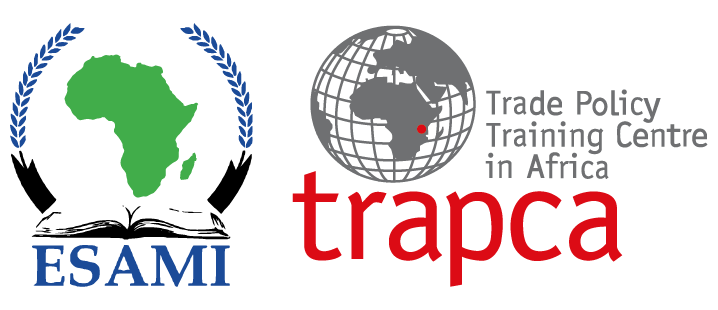Overview
The role of African parliamentarians in international economic law making is largely residual in nature. In most countries and regions, the role of the parliamentarian is only recognized at the latter end of trade negotiations when there is almost no scope review or change deal negotiated by the executive. Furthermore, the structure of most parliaments is designed to largely follow domestic economic issues with little attention paid to economic integration developments in the African continent and at the global level. However, it is trite that trade and trade policy create winners and losers at least in a relative sense. There is therefore an urgent need for parliaments to get engaged in the developments that ultimately shape the future of the African continent and that of their countries and regions. This is important given that the clashing twin objectives protecting national policy making space versus the need to consolidate individual country based markets into regional and continental markets so as to be competitive in global markets are always on the table. Consequently, the ongoing negotiations at the AU on AfCFTA serve as an example of a prime area in which these two objectives are at play. This calls for active participation of parliamentarians with a view to not only shaping the economic future of their countries but also that of the African continent.
Trade Policy and Regional Economic Integration Training Course for Parliamentarians aims at familiarizing parliamentarians with economic issues subject to international trade negotiations and their implications on their regions as well as their countries. The course will focus not only on the economic dimensions of international trade agreements and negotiations but also their implementation implications. The training will inevitably focus on the political economy on international trade negotiations with a view to providing context to the historical foundations of international economic law and recent developments as well as potential developments. Most importantly, the training will focus on domestic dimensions of international trade including an overview of checks and balances that must inform parliaments interaction with the executive, the private sector and the civil society. The training will provide an exposé of global best practices and link on key pillars of the economic agenda that underpins.
Expected training outcomes
Fees and other costs
The fee for the programme will be payable in US dollars and will cover tuition, presentation material and other documentation. It also includes lunch and refreshments during each working day. Discounts are available for every 2 or more delegates registered from the same institution.
Course Fee: $2500
Venue: Mombasa, Kenya. However, subject agreement with clients, the course may be offered in any of the following venues: Kampala, Uganda, Mombasa, Kenya; Nairobi Kenya; Livingstone Zambia; Arusha, Tanzania and Dubai.
Dates: 1-5 May 2023
How to apply
Prospective participants should apply by filling the form below.
Inquiries
For any inquiries, kindly write to admissions@trapca.org
